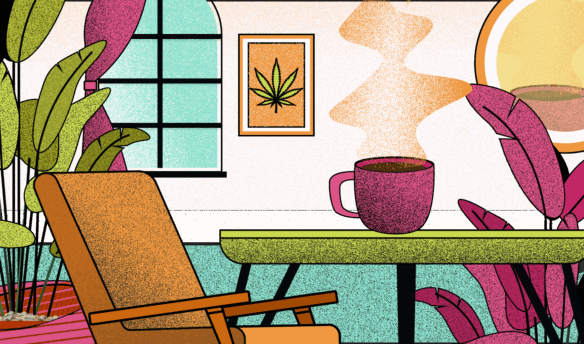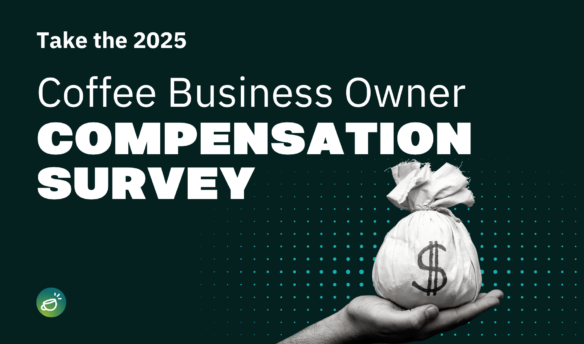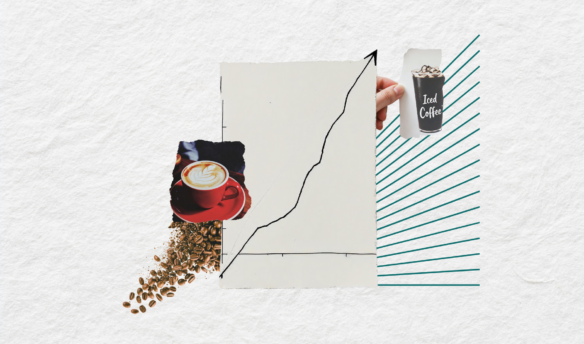Earlier this year, we invited coffee business owners in the United States to complete the first-ever Coffee Business Owner Salary Survey. We received 155 responses from business owners of cafes, coffee trucks, carts, and roasting companies across the United States.
At the end of the survey, we asked an open-ended question: “Anything else that could be helpful to know about your take-home pay?”. Many respondents offered very specific and enlightening answers, and we’d like to note a few of the recurring themes.
This is part three of a three-part series on our survey findings:
- Survey Results: The 2023 Coffee Business Owner Salary Report
- Survey Results: What Do The Highest-Paid Coffee Business Owners Have In Common?
- Survey Results: Six Recurring Themes That Shine A Light On Coffee Business Owner Challenges (you are here)
Before diving into the recurring themes, it’s important to note that these responses are self-reported, and context may be missing to fully understand an individual respondent’s situation. For example, some business owners noted that they are not the highest-paid people inside of their businesses, but since we are not also measuring the hours worked by those individuals, it’s unclear whether they have depressed wages because of business hardship, or because they have a full-time job elsewhere. Please read these key themes as an overview of sentiments but not a detailed analysis.
Outside sources of income fund the coffee business dream for many.
A significant number of respondents noted that their coffee business is not their main source of income, and many have a full-time job on top of roasting coffee or pulling barista shifts. Some of these people reported paying themselves a salary of $1,000 to 2,000 per month and some reported taking zero income from the coffee business and using their full-time job to fund their business.
- “I supplement my income currently with marketing consulting work that I do with my other 20-30 hours per week and that work pays me more currently than I can take from my coffee business.”
- “I had to work full time outside of my business until year 4.”
- “I make a generous salary elsewhere so we are able to pour the potential wages back towards the company.”
- “Cashed out my teacher retirement fund to float my personal finances while I launched the business. Not until very recently did I start actually paying myself a (mostly) regular paycheck.”
Owners may depress personal compensation to maintain proper staffing levels.
10.3% of all survey respondents noted that they have kept their personal income low to keep the business running with a full staff.
- “I’d make more if I paid myself the same as my manager. I am not trying to be rich, I just want to share my passion for coffee and be able to afford to take care of my family.”
- “Since COVID, I’m taking basically nothing from the coffee shop, but have retained staff, maintained hours, and given raises over the last three years.”
- “I’ve never made more than managers or full time baristas. Most years I only made 25k, it took about 8 years to make the same as the managers.”
Many coffee business owners don’t feel the effort is worth the reward.
Many reported that the stresses of running a coffee business are not backed with the financial rewards to make it worth it. A large portion of respondents noted that the take-home pay hasn’t met expectations.
- “It’s been rough to make ends meet the last few years.”
- “I worked the first 5 years making less than minimum wage and working every bit as hard as I am now–if not harder! I would have made more working for my competitor those years”
- “It’s half of what I should be paid. And twice what the business can afford.”
- “My salary last year was 1.6x the lowest-paid salaried employee at our company. I enjoy, generally, what I do and find it rewarding but feel that running a small coffee business will ultimately take years off my life and will never pay enough to justify the mental and physical labor that goes into it.”
- “If I wasn’t 15 years in already I’d have chosen another career path. I will encourage my children to find another path in life.”
- “Home price median is at 1mil. Cost of living without rent is $5k/month minimum with family. Rent for 1k square foot, 3 bedroom home is $3500 month or more. I rent and will never own a home in my own city.”
Some owners are focused on reinvesting back into the business.
Several respondents noted that it’s not worth taking an income currently.
- “In 2022 I paid myself just enough to pay my bills at home. Because I’m in a huge growth mode and every extra Penny goes right back into the business and to make sure my employees are paid very well.”
- “I don’t pay myself or take much of anything because I want this to grow and I can reinvest that money into more employees when it’s time for me to take a step back”
- “Everything we make goes right back into the business, that is why I do not claim a paycheck. Right now, we can’t really afford to pay”
- “Right now the business is supporting itself. I hope to start pulling something soon.”
There is a lot of debt.
Many respondents noted that their businesses are saddled with debt, either from the initial startup costs or from loans taken to open new locations.
- “Debt. Lots of debt.”
- “I took home exactly what I needed to pay the bills and eat, more Than half of my take home is to pay loans”
- “I’m paying off the roasting business in 2023 and intend to give myself a large salary raise to at least $3,000 or $4,000/mo after that $90,000 debt is paid.”
- “We pay ourselves the same as the GM. Could pay ourselves another 5-10k, but using that to pay down debt.”
Despite the financial challenges, some find their business journey very rewarding.
In contrast to the respondents who noted they did not feel they earned enough to justify the stress and risk, a handful of respondents noted how much they love running a coffee business.
- “Taxes suck, but it’s an honest day’s wage doing something I love. Can’t complain.”
- “I get to travel and often have meals at the business’s expense. And I drink a lot of coffee on the business’s dime!”
- “I could take less and not work as much but I like to keep my face in the shop. It’s a small town so I want to keep up relationships with the customers”
Thank you to everyone who participated. You have helped establish the first benchmark for personal compensation among coffee shop and roasting company owners. Your insights will be invaluable for entrepreneurs evaluating a potential future in the world of coffee.
















